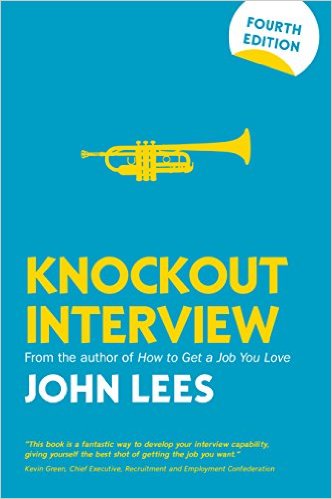Top 5 interview questions and how to answer them
Career coach and author John Lees talks about the top 5 most common interview questions and how you should answer them. Words Cameron Butler

Interviews can be nerve-wracking, especially your first. The fact that your future career can be based on a short conversation is terrifying. However, even with this fact in place, the amount of people that under-prepare, and leave their success to chance is worrying, because interviews are extremely predictable, says John Lees, in his newly revised book ‘Knockout Interview’. Here he gives us his best tips on answering common interview questions.
Tell us about yourself
You may be thinking ‘my CV includes this information’. Well, chances are the person conducting your interview hasn’t been able to read through your CV fully, meaning this information will most likely provide them with their first impressions of you as a person.
This question is deliberately open, and you should focus on the immediate skills you have. You should keep your answer very brief, as John Lees says, your answer should be ‘no more than two or three minutes’, and if more is required, then the interviewer will say so. State any experience you have in any previous jobs, keep it straight forward, and simply just tell them about yourself.
How much do you know about us?
Before going into the interview, you must prepare for this question. As a person about to enter a job into a company, you are expected to know about the company, understandably. Research the company you are applying for, and find out the main services that it may provide, or any awards the company may have previously won for its work.
Getting an insider perspective of the organisation would also be useful, as it will allow you to find out information that may be hard to find otherwise. You should answer this question by providing a concise overview of your findings from the research you have conducted, again, keeping it brief. The interviewer knows about the company, they want to know if you do.
How would you describe your personality?
“The two kinds of answer an interviewer doesn’t want to hear (are) a long list of over-blown adjectives or ‘I’m not sure’”, says John Lees. He suggests looking at any job documents that describe your work ethic and attitude. Use them to get good words or phrases that describe your personality in the workplace. Ask people that you spend your day-to-day life with how they would describe you, what words they would use if they were limited to only a few.
Make sure you link whatever has been said to the job you are being interviewed for, and then you will know which characteristics are useful and which ones you may need to work on. Preparing for this question helps you understand what kind of person you are which, in turn, helps you understand why you would be perfect for the job.
Why should we give you the job, and not others with similar background and experience?
Face it, there may be a lot of other people competing for this job, so you now have to show that you are different and can bring something new to the table, which can be difficult. Talk about your strengths, which are linked to the role that you are applying for, and make sure you have hard evidence to back these strengths up.
But you must go further than that – everyone else applying for this job will be able to list their strengths. Talk about the skills and knowledge you have and how you apply them to your work, how you differ in skills from the other candidates. Perhaps you wrote film reviews for your school magazine, helping you move forward in your language skills and get that media degree.
Use life skills that you have only learnt through personal experience to show that you are interested in this area of work. By the end of this answer, you must have proved to the interviewer that you are worthy for the job and that you want to be part of this organisation.
Do you have any questions for us?
Don’t say no! If you say no, John Lees says that interviewers will feel that ‘your main motivation is to get out of the interview room’. You must prepare some questions for the end of the interview. Write down three or more questions to ask, in case any of your questions have already been answered throughout the interview, and make sure they are relevant to the job.
These questions could be about the company, ‘Are there any plans for expansion?’, or about the company’s workers, ‘What is the main thing the organisation expects from its employees?’ Ask clearly and keep the questions short. Practise saying the questions out loud, so that you know the words you have chosen go well together. An interviewer will want you to ask questions because it shows that you will go the extra mile to get information that may later be needed in the job.
Knockout Interview by John Lees (McGraw-Hill Professional, £9.17).

Photograph: iStock








